Ethiopia Extravaganza
-
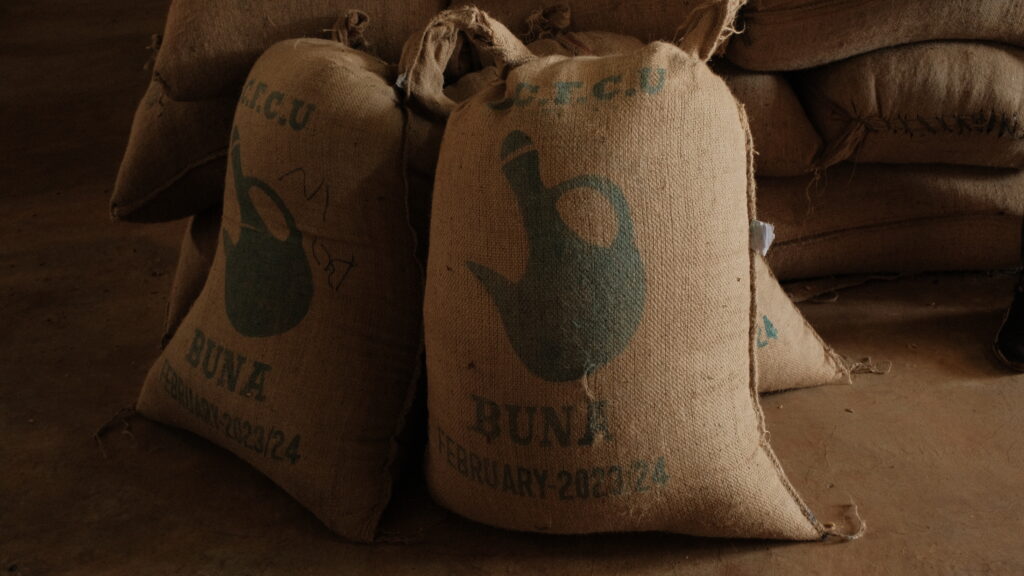
-
Centuries ago, coffee was discovered in the high altitudes of Ethiopia. Mythical stories tell of a goat herder who noticed the unusual cherries, others tell the tale of a Sufi mystic who discovered the cherries. Regardless…Ethiopia is the homeland of coffee. And today, coffee represents something truly special and remarkable in Ethiopian culture. Join our Traceability Manager, Michaela Tomchek, as she travels to visit Yirgacheffe and Sidama to explore some prominent coffee-producing areas.
-
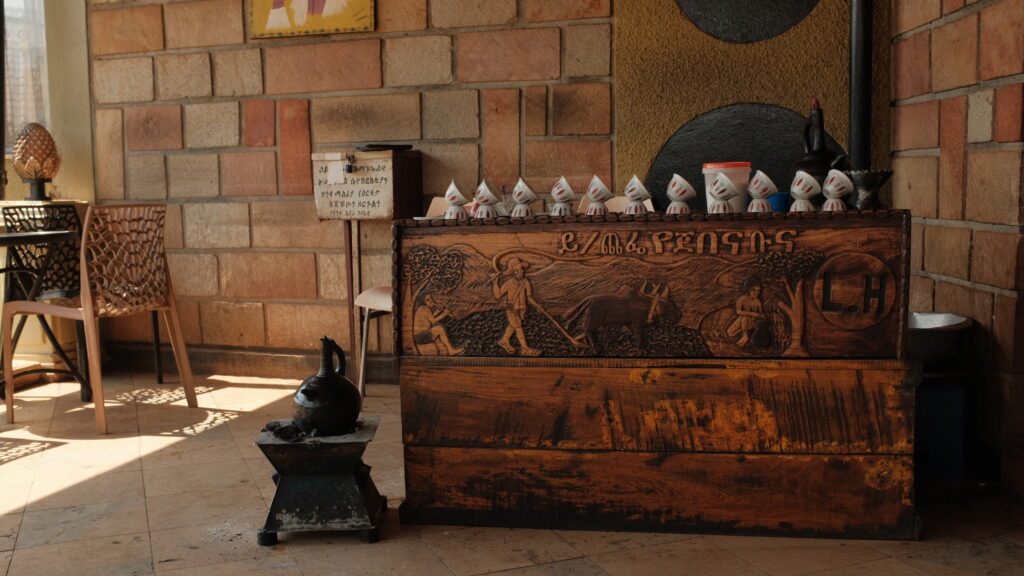
-
Ethiopia is the fifth leading producer of coffee, and actually consumes about half of what it produces. A quarter of the population relies on coffee as a source of income, and coffee trees grow in wild gardens around farmer’s homes in the producing regions of Yirgacheffe, Guji, Sidama, and Kochere amongst others.
In the Yirgacheffe region, the exporting group of Primrose manages a number of washing stations. This is where farmers from the area are able to bring their cherries to be processed and where they are paid for their coffee. Primrose work with over 3,000 farmers in Yirgacheffe and Guji.
Primrose was started back in 2010 by Mr. Abreham Mengiste and Mrs. Meseret Workneh, who both had over 20 years of experience in the coffee industry. Their work has helped bring awareness to the exceptional coffees being grown in Yirgacheffe and Guji.
-
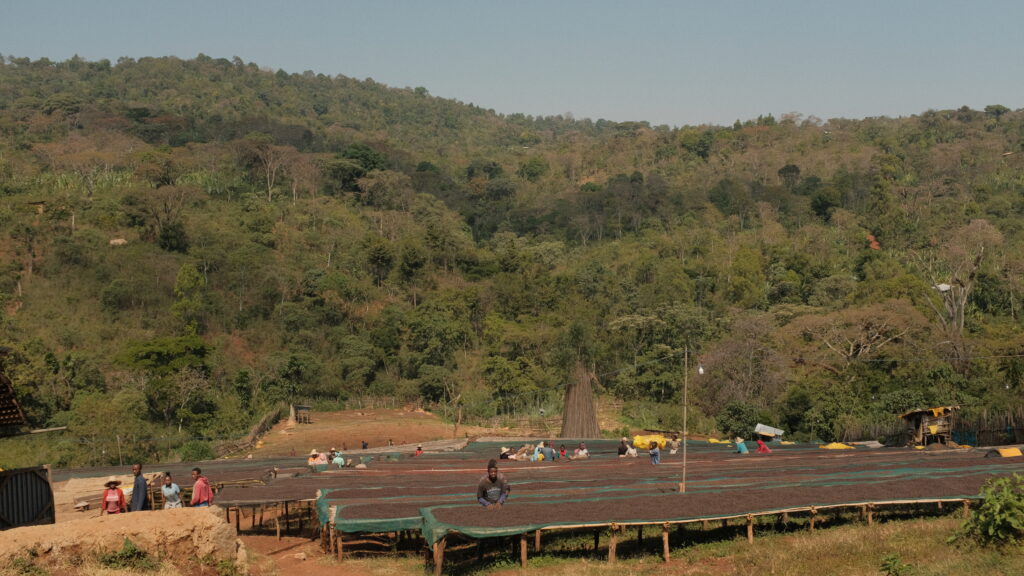
-
Specifically, in Yirgacheffe, Primrose manages eight washing stations, one of which is the Konga Amederaro Station (photographed above). Started four years ago, this station is where over 1,000 farmers bring their cherries to be weighed and processed.
The cherries are processed here, utilizing the Washed, Natural, and various fermentation methods. Primrose has an extensive knowledge of processing, and has mastered the art of fermentation. Cherries dry in the open sun on the 118 drying beds here, and workers ensure the coffee is evenly dried and sorted. As soon as farmers bring their cherries to the station, they are paid and also receive a premium later in the year based on how much they sold. This is the case for all of the farmers working with Primrose.
-
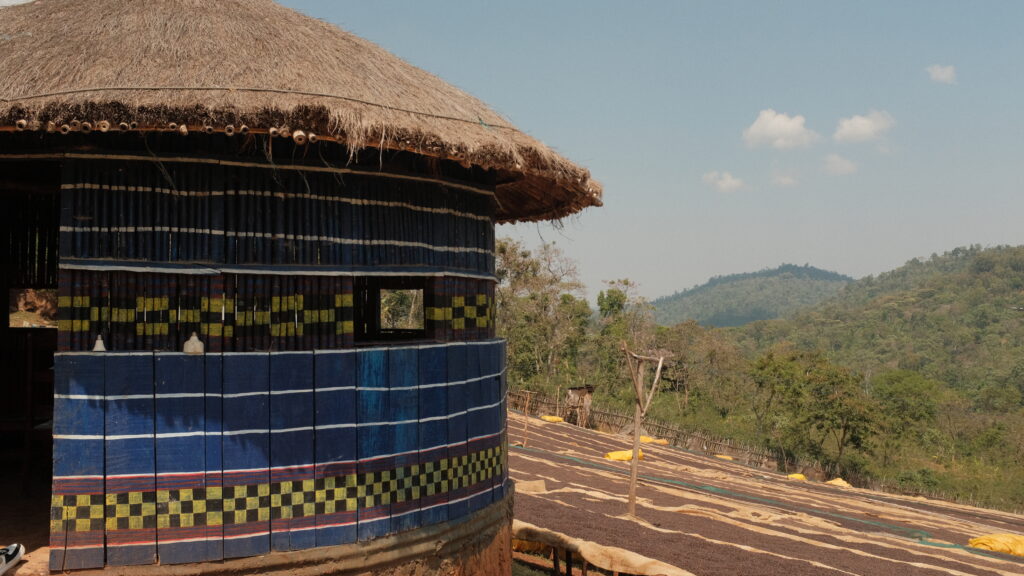
-
Another washing station belonging to Primrose in Yirgacheffe is the Koke Station (photographed above). Here, between 1,000 and 2,000 farmers bring their cherries to be weighed and processed. This station has been running for five years, and has a colorful shed made from bamboo where the staff take breaks to have a meal or rest. There are 175 permanent workers here, processing the coffee, sorting, and bagging the final product. 70% of the coffee here is Washed, the rest is a mix of Natural and different fermentation methods.
The farms contributing coffee to this station typically grow coffee on small plots of land intercropped with inset (false banana) and avocado. As you drive up to the Koke station, you can see coffee growing along the bumpy roadside.
Primrose have also supported a collection of social projects such as the construction of two water wells in Guji with support from an Australian client to supply clean water to the Muje Mesina community. Also, near the Yirgachffee, Konga Amederaro Station, a school was expanded to accommodate more students thanks to Primrose’s efforts. School supplies were also donated to assist with the education of the local children.
-
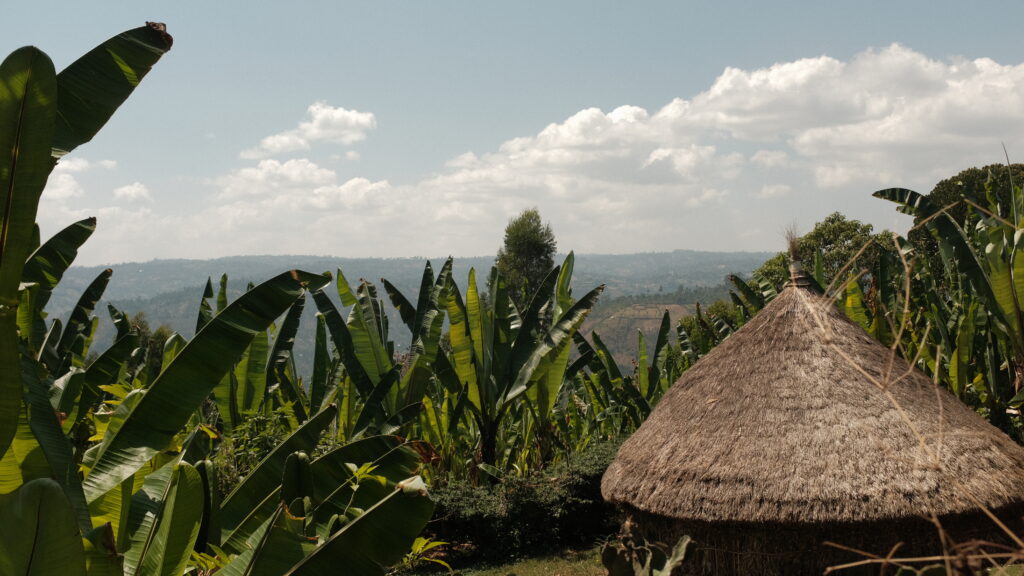
-
Another exporting group in Ethiopia is Daye Bensa, who started their work in 1996, founded by brothers Asefa Dukamo Korma and Mulugeta Dukamo. Today, they work with 50,000 – 70,000 farmers and manage 70 washing stations throughout the Bensa, Aroressa, and Chire districts of Sidama. In 2006, they began exporting their coffee throughout the world, rather than trading within the country. In 2020, 2021, and 2022, their coffees placed in the Ethiopia Cup of Excellence competition.
-
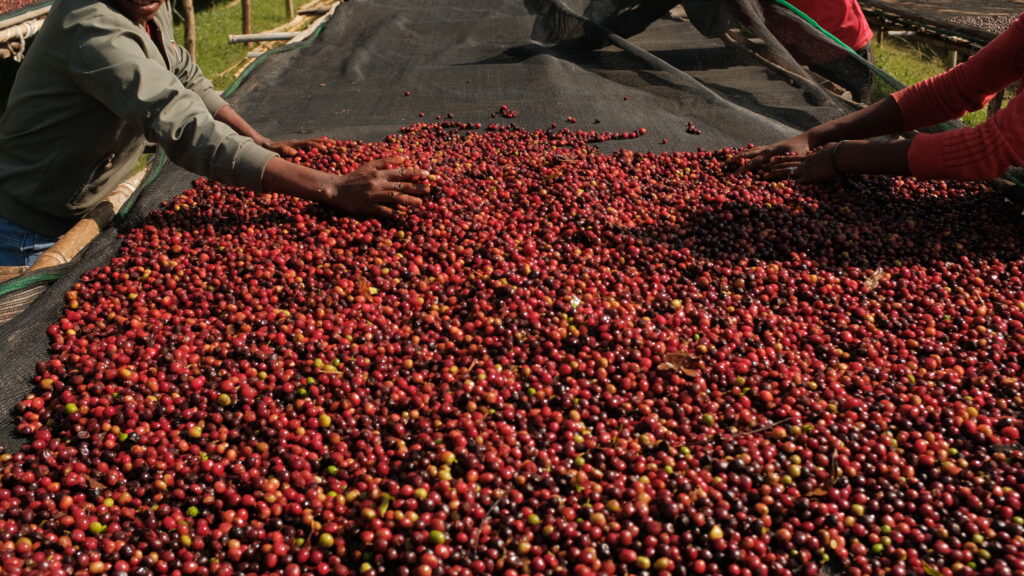
-
Their Gatta Farm (photographed above) was acquired six years ago and is 19.5 hectares of land growing local Ethiopian varietals. It is also here where coffee is processed and dried atop the many drying beds. There is also a fermentation shed where coffees are carefully monitored as they undergo various fermentation methods.
-
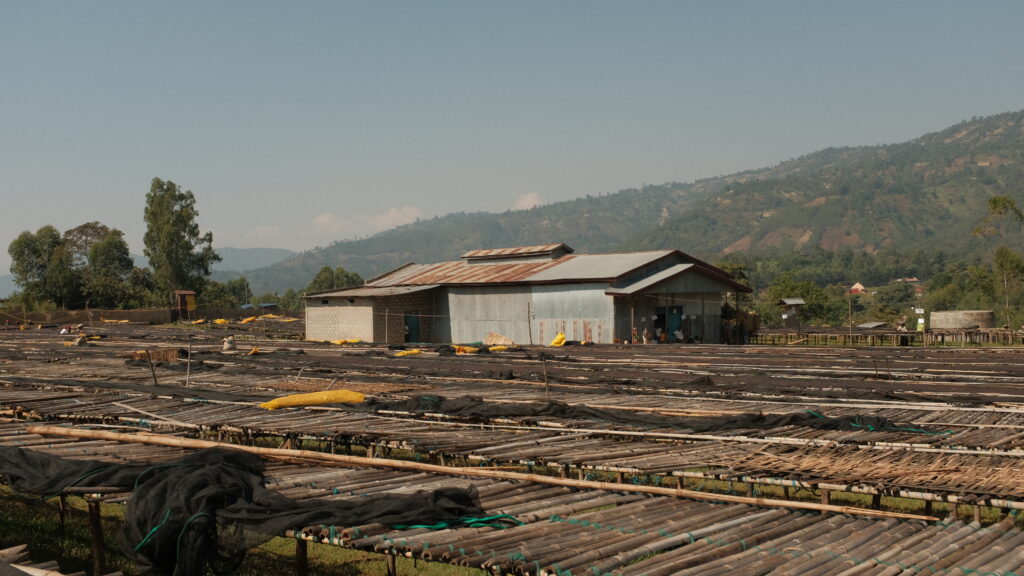
-
The Damo Station (photographed above) is one of the washing stations belonging to Daye Bensa in the Bensa district, They have been collecting cherries here from farmers in the area for over ten years. There are 250 expansive bamboo drying beds at the Damo Station, situated along the hillside overlooking a beautiful mountain. Happy workers spread fresh cherries on the beds and sort through already dried beans to remove any irregularities. Half of the coffee here is Washed, and the remainder is Natural.
As soon as farmers bring their cherries to these stations, they are paid in cash depending on weight and quality. Daye Bensa also disperse a bonus after selling the coffee, which is the same for all of the farmers selling to Daye Bensa.
-
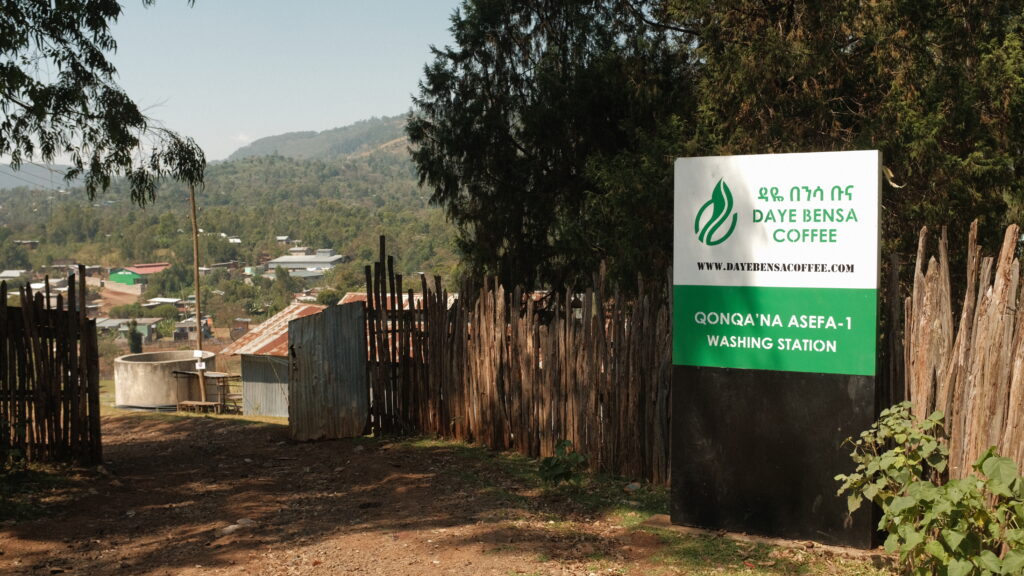
-
Another of the Daye Bensa washing stations is the Qonqa’na Station (photographed above), the first that opened over thirty years ago. Today, the station has 420 bamboo drying beds, and processes Washed (75%) and a mix of Natural and Honey coffees. Here, the beds are similarly set up along a slope, overlooking the hills of Sidama.
Daye Bensa has also supported various community projects such as the construction of five schools in some of the producing areas. They contributed $1 million to this project, and the schools are fully equipped to house and teach over 1,400 students. This allows children an easier opportunity to attend school closer to their homes and provides them with the ability to pursue further education in the future.
-
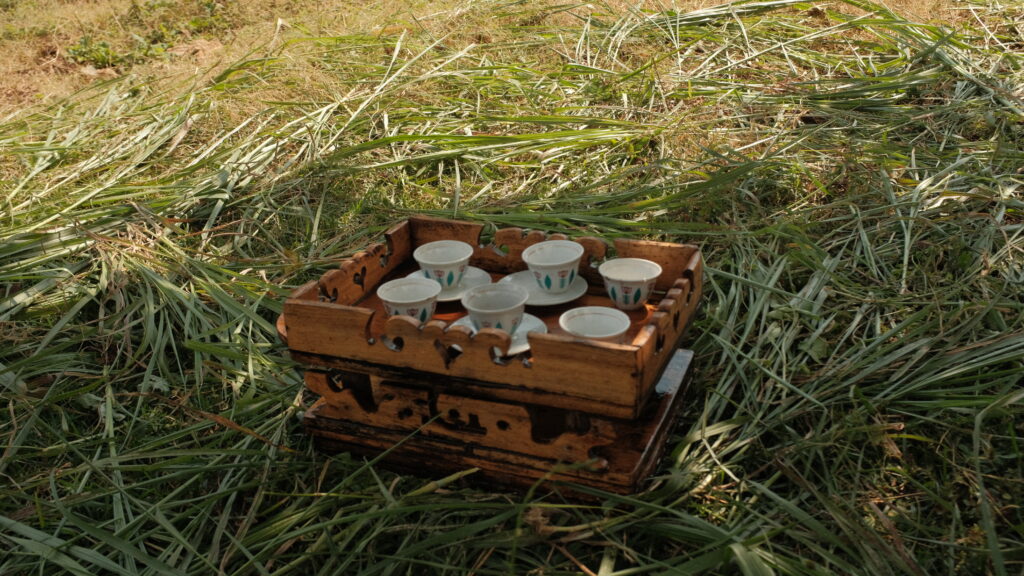
-
Ethiopia truly has a magnificent coffee culture, with coffee being served on roadsides, in hotels, homes, restaurants and even at the washing stations in a special traditional way. Incense burns as the coffee is poured from a Jebena into small white ceramic cups adorned with colorful flowers. Coffee is served with snacks, such as popcorn or Kolo (roasted barley with nuts). It was beautiful to experience, and the coffee was exceptional.
Equally impressive are these amazing groups that are working to create a future for coffee in Ethiopia, who are highlighting the excellent quality of coffee that grows all throughout the country.